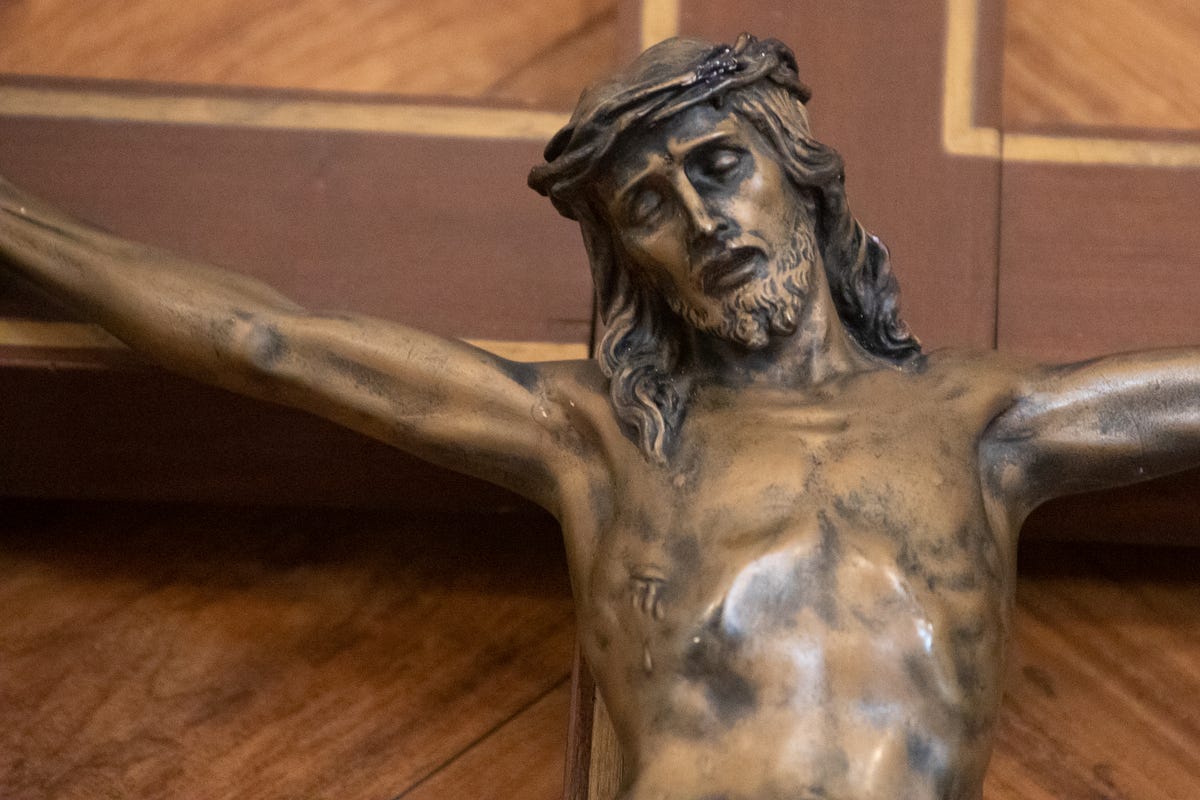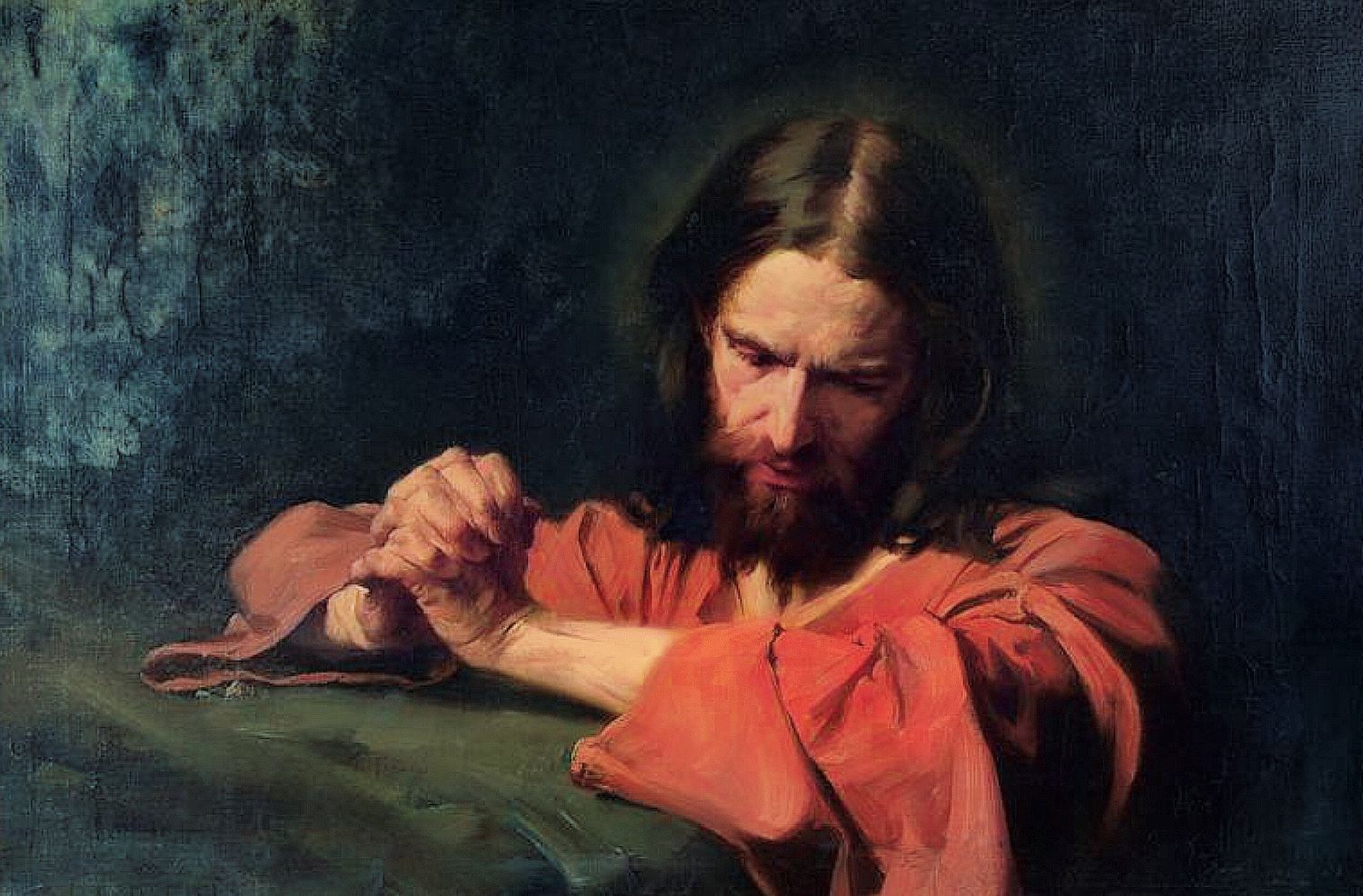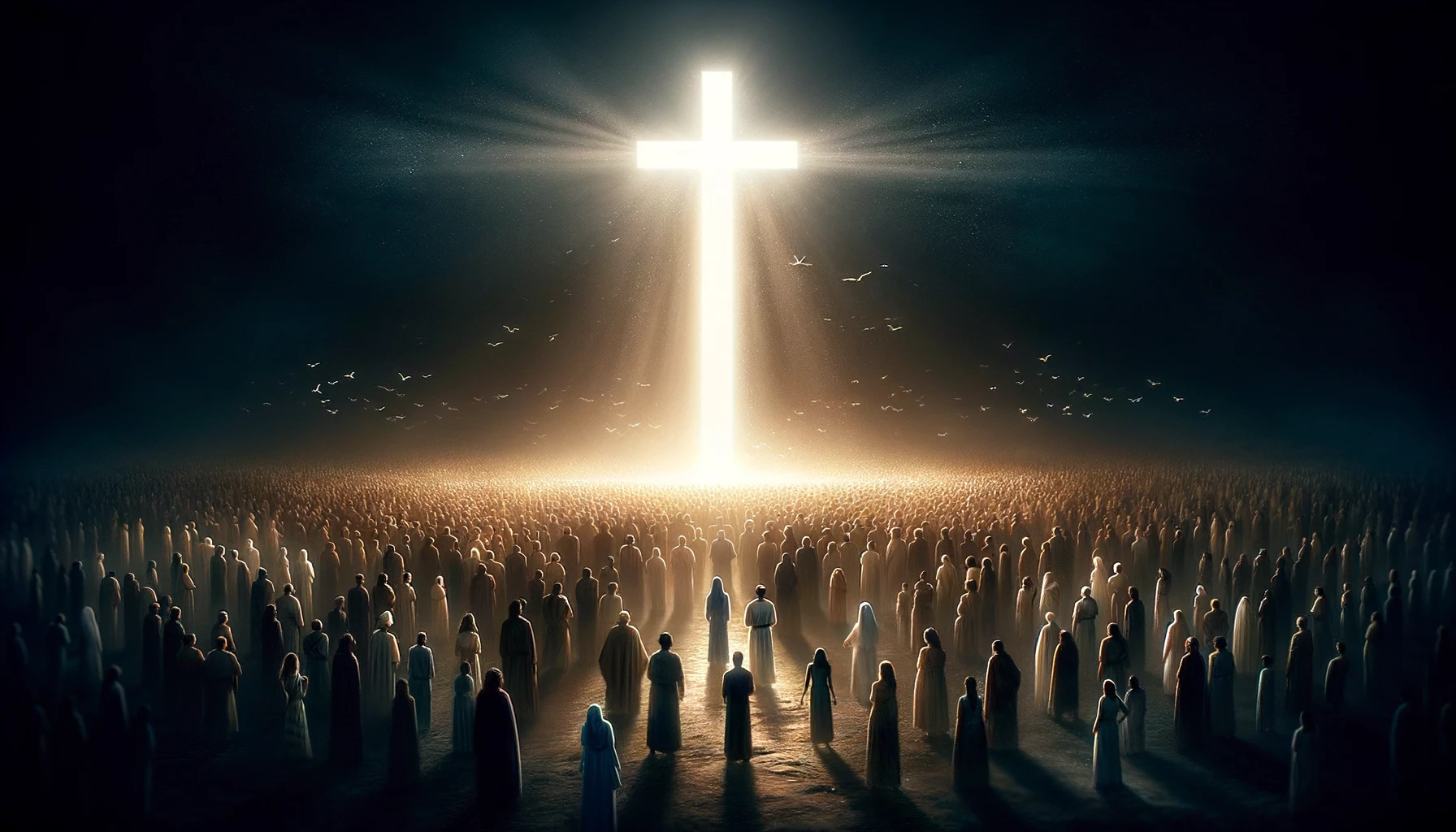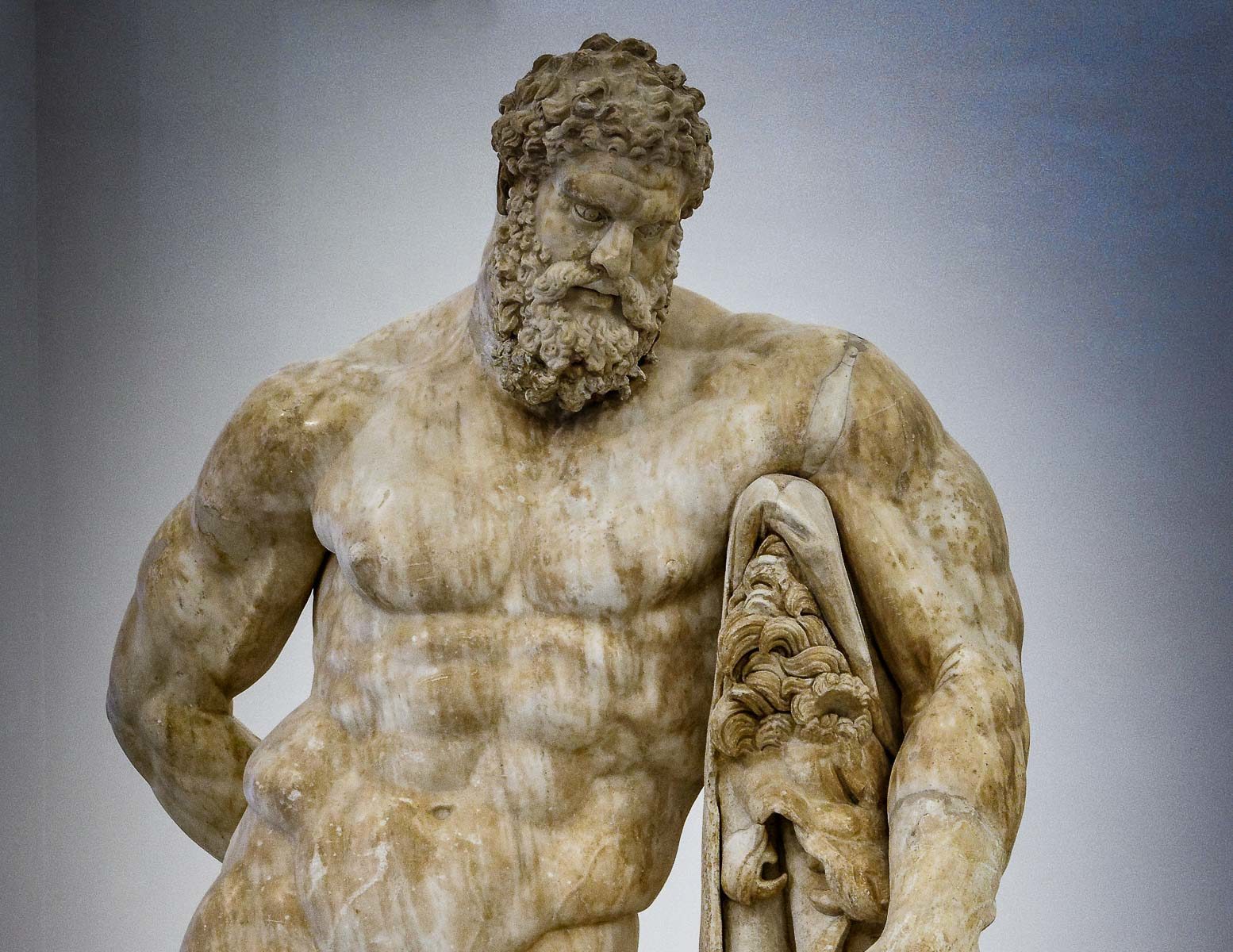Home>Theology and Spirituality>What Is Vicarious Atonement


Theology and Spirituality
What Is Vicarious Atonement
Published: February 9, 2024
Peter Smith, Editorial Director at Christian.net, combines deep insights into faith, politics, and culture to lead content creation that resonates widely. Awarded for his contributions to religious discourse, he previously headed a major organization for religious communicators, enhancing dialogue on faith's societal impacts.
Learn about the concept of vicarious atonement in theology and spirituality, and its significance in religious beliefs and practices. Understand the implications of vicarious atonement in various faith traditions.
(Many of the links in this article redirect to a specific reviewed product. Your purchase of these products through affiliate links helps to generate commission for Christian.net, at no extra cost. Learn more)
Table of Contents
Introduction
Vicarious atonement is a concept deeply rooted in theology and spirituality, holding significant importance across various religious traditions. At its core, vicarious atonement revolves around the idea of one individual assuming the consequences of another's actions, particularly in the context of sin and redemption. This profound and complex concept has sparked extensive theological discussions and debates, shaping the beliefs and practices of numerous faith traditions.
The notion of vicarious atonement delves into the fundamental questions of justice, mercy, and the nature of divine intervention in human affairs. It raises thought-provoking inquiries about the interconnectedness of individuals and the profound implications of one person's actions on the spiritual well-being of others. As such, it serves as a focal point for contemplation and introspection within religious communities and philosophical circles alike.
Throughout history, vicarious atonement has been a subject of deep contemplation and interpretation, influencing the moral and ethical frameworks of societies and guiding individuals in their quest for spiritual reconciliation. Its multifaceted nature invites exploration from various perspectives, shedding light on the intricate tapestry of human beliefs and the pursuit of divine grace.
In the subsequent sections, we will delve into the multifaceted dimensions of vicarious atonement, exploring its definitions, historical significance, religious and philosophical interpretations, as well as the criticisms and controversies that have surrounded this profound concept. By navigating through these diverse facets, we aim to unravel the depth of vicarious atonement and its enduring impact on theological discourse and spiritual understanding.
Read more: What Is Atonement
Definition of Vicarious Atonement
Vicarious atonement, at its essence, embodies the concept of one individual assuming the burden of another's transgressions in order to facilitate reconciliation with the divine. This profound theological notion is deeply intertwined with the idea of redemption and the restoration of spiritual harmony. It encompasses the belief that a sacrificial act, often carried out by a benevolent figure, can serve as a means of atoning for the sins of others, thereby enabling them to attain forgiveness and divine favor.
Central to the concept of vicarious atonement is the sacrificial element, wherein an individual willingly undertakes the consequences of wrongdoing on behalf of others. This act of substitution is underpinned by the profound sense of compassion and empathy, reflecting a selfless willingness to bear the spiritual burdens of fellow beings. It embodies the belief in the interconnectedness of humanity, where one's actions and sacrifices can reverberate across the spiritual realm, offering the prospect of redemption and renewal to those in need.
In Christian theology, the epitome of vicarious atonement is exemplified in the sacrificial death of Jesus Christ, who, according to Christian belief, willingly bore the sins of humanity, offering a path to reconciliation with God. This pivotal event, often referred to as the Atonement, is regarded as the ultimate demonstration of divine love and mercy, illustrating the profound implications of vicarious atonement within the Christian faith.
Moreover, within the broader theological landscape, vicarious atonement manifests in diverse forms, reflecting the unique perspectives and interpretations of various religious traditions. Whether through the compassionate acts of revered spiritual figures, the ritualistic practices of atonement, or the intercessory prayers offered on behalf of others, vicarious atonement embodies the universal yearning for spiritual restoration and the alleviation of human frailty.
In essence, the definition of vicarious atonement encapsulates the profound interplay between compassion, sacrifice, and spiritual reconciliation, offering a glimpse into the enduring quest for divine grace and the interconnectedness of human destinies. This multifaceted concept continues to inspire contemplation and theological discourse, resonating across diverse faith traditions and shaping the moral and ethical fabric of societies.
Historical and Cultural Perspectives
The concept of vicarious atonement has left an indelible mark on the historical and cultural tapestry of humanity, permeating through diverse civilizations and shaping the collective consciousness of societies. Across epochs and geographical boundaries, the notion of one individual assuming the spiritual burdens of others has manifested in various forms, reflecting the profound yearning for redemption and spiritual renewal.
In ancient civilizations, the practice of vicarious atonement found expression in ritualistic ceremonies and sacrificial offerings, symbolizing the communal desire for divine favor and the expiation of transgressions. From the elaborate rituals of the Aztecs, where sacrificial offerings were made to appease the gods and ensure the well-being of the community, to the ceremonial practices of ancient Mesopotamia and Egypt, vicarious atonement permeated the religious and cultural ethos of these civilizations, underscoring the intrinsic human longing for spiritual reconciliation.
Moreover, the historical narratives of revered spiritual figures and leaders embody the essence of vicarious atonement, illustrating the profound impact of selfless acts and sacrificial deeds on the collective consciousness of societies. The stories of individuals who willingly bore the burdens of others, whether through acts of compassion, intercession, or self-sacrifice, have resonated across cultures, inspiring a collective ethos of empathy and altruism.
In the context of Christianity, the historical significance of vicarious atonement is epitomized in the crucifixion of Jesus Christ, whose sacrificial death is regarded as the ultimate manifestation of divine love and redemption. This pivotal event, entrenched in the annals of history, has profoundly shaped the cultural and artistic expressions of Christian societies, serving as a poignant symbol of compassion and spiritual renewal.
Furthermore, the cultural perspectives surrounding vicarious atonement have permeated literary works, artistic endeavors, and philosophical discourses, offering profound insights into the human experience and the enduring quest for transcendence. From the allegorical representations in literature to the evocative depictions in visual arts, vicarious atonement has served as a compelling motif, inviting contemplation and introspection on the interconnectedness of human destinies and the redemptive power of selfless acts.
In essence, the historical and cultural perspectives of vicarious atonement bear testament to its enduring influence on the collective consciousness of humanity, transcending temporal and spatial boundaries to resonate as a timeless emblem of compassion, sacrifice, and spiritual reconciliation.
Religious and Philosophical Interpretations
The concept of vicarious atonement has elicited diverse religious and philosophical interpretations, reflecting the profound nuances of spiritual understanding and ethical contemplation across various traditions. Within the rich tapestry of religious thought, vicarious atonement embodies multifaceted interpretations, serving as a focal point for theological discourse and moral reflection.
In Christianity, the theological interpretation of vicarious atonement centers on the sacrificial death of Jesus Christ as the ultimate act of redemption and reconciliation. According to Christian doctrine, Jesus willingly bore the sins of humanity, offering a path to spiritual renewal and divine favor. This interpretation underscores the profound significance of compassion, sacrifice, and divine mercy, shaping the foundational beliefs of Christian faith and inspiring contemplation on the interconnectedness of human destinies.
In contrast, within the framework of Islamic theology, the concept of vicarious atonement is approached from a distinct perspective. Islamic teachings emphasize individual accountability and the direct relationship between humans and the divine. The notion of vicarious atonement is viewed through the lens of personal repentance and seeking divine forgiveness, highlighting the intrinsic responsibility of individuals in atoning for their own transgressions. This interpretation underscores the profound agency of human beings in seeking spiritual reconciliation and the importance of sincere repentance in Islam.
Furthermore, within the philosophical domain, vicarious atonement has sparked profound contemplation on the nature of compassion, justice, and the ethical dimensions of intercession. Philosophical interpretations delve into the moral implications of one individual assuming the spiritual burdens of others, raising thought-provoking inquiries about the interconnectedness of human experiences and the ethical complexities of sacrificial acts. This philosophical discourse offers a nuanced exploration of vicarious atonement, shedding light on the intricate interplay between empathy, justice, and the pursuit of spiritual harmony.
Across diverse religious and philosophical traditions, vicarious atonement continues to inspire profound reflections on the nature of divine grace, human frailty, and the enduring quest for spiritual reconciliation. Its multifaceted interpretations serve as a testament to the depth of theological inquiry and ethical contemplation, resonating as a timeless emblem of compassion, sacrifice, and the interconnectedness of human destinies.
Criticisms and Controversies
The concept of vicarious atonement has not been immune to criticisms and controversies within theological and philosophical discourse. One of the primary criticisms revolves around the ethical implications of one individual assuming the consequences of another's actions. Critics argue that the notion of vicarious atonement raises profound questions about the fairness and justice of transferring the burden of sin from one party to another, particularly in the absence of direct accountability. This ethical quandary underscores the complexities inherent in the concept of vicarious atonement and has prompted extensive deliberation within theological circles.
Moreover, the theological interpretations of vicarious atonement have sparked controversies regarding the nature of divine justice and the role of personal responsibility in spiritual reconciliation. Critics contend that the concept of vicarious atonement may potentially diminish the significance of individual accountability and the moral imperative of seeking personal repentance. This critique underscores the tension between the compassionate aspects of vicarious atonement and the ethical considerations surrounding personal agency and accountability in matters of spiritual redemption.
Furthermore, the concept of vicarious atonement has elicited controversies across religious traditions, with divergent interpretations and theological perspectives contributing to nuanced debates. The varying theological stances on vicarious atonement, particularly within Christianity, Islam, and other faith traditions, have engendered profound disagreements and deliberations regarding the nature of divine grace, justice, and the ethical dimensions of spiritual reconciliation.
Additionally, the historical and cultural contexts surrounding vicarious atonement have also been subject to scrutiny, with critics highlighting the potential for misinterpretation and misuse of the concept to justify coercive or oppressive practices. The historical manifestations of vicarious atonement, particularly in the context of sacrificial rituals and intercessory acts, have been scrutinized for their potential implications on individual autonomy and ethical integrity.
In essence, the criticisms and controversies surrounding vicarious atonement underscore the profound ethical and theological considerations inherent in this concept. The multifaceted nature of these debates reflects the enduring impact of vicarious atonement on theological discourse and ethical contemplation, inviting continual reflection and dialogue within religious and philosophical spheres.
Read more: What Is A Day Of Atonement
Conclusion
In conclusion, the concept of vicarious atonement stands as a profound emblem of compassion, sacrifice, and the interconnectedness of human destinies within theological and philosophical discourse. From its historical and cultural significance to its diverse religious and philosophical interpretations, vicarious atonement embodies a complex tapestry of ethical and spiritual contemplation.
Throughout history, vicarious atonement has permeated diverse civilizations, inspiring ritualistic practices, sacrificial offerings, and narratives of revered figures who bore the burdens of others. This enduring presence underscores the universal yearning for spiritual reconciliation and the alleviation of human frailty, transcending temporal and spatial boundaries to resonate as a timeless symbol of compassion and empathy.
The religious and philosophical interpretations of vicarious atonement offer profound insights into the nature of divine grace, human accountability, and the ethical dimensions of intercession. Whether exemplified in the sacrificial death of Jesus Christ within Christianity or approached from the perspective of personal repentance in Islam, vicarious atonement continues to inspire contemplation on the interconnectedness of human experiences and the enduring quest for spiritual renewal.
However, the concept of vicarious atonement has not been devoid of criticisms and controversies, prompting ethical deliberations on the fairness of transferring the burden of sin and the potential implications for individual accountability. These debates underscore the profound complexities inherent in vicarious atonement and invite continual reflection on the ethical and theological dimensions of this concept.
In essence, vicarious atonement remains a poignant symbol of the human quest for spiritual reconciliation and the enduring yearning for divine grace. Its multifaceted nature invites ongoing dialogue and contemplation, resonating as a testament to the depth of theological inquiry and ethical reflection within diverse religious and philosophical traditions. As humanity continues to navigate the complexities of spiritual understanding and ethical contemplation, the concept of vicarious atonement stands as a timeless emblem of compassion, sacrifice, and the interconnectedness of human destinies.














